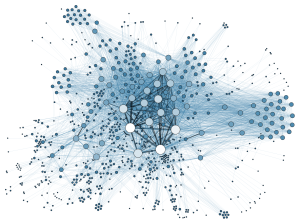About
Directional statistics are concerned with data that represent directions, in other words, vectors having a common origin and whose length is of no interest. The typical supports for directional data are the unit circle, unit (hyper-)sphere, (hyper-)torus, and cylinder. The non-linear nature of these manifolds implies that classical statistical techniques and tools cannot be used to analyze directional data, and this has given rise to the research flow called directional statistics. In this project, we are mainly interested in data on the hyper-torus, which is directly linked to an important application in structural bioinformatics, more precisely in the protein structure prediction problem. A protein consists of a sequence of amino acids, which essentially defines a protein’s three-dimensional shape and dynamic behavior. The structure is for many purposes adequately described using angles. Some of the most important angles are the pair of the so-called dihedral angles, and so statisticians in recent years have mostly focused on modeling them. This was done using toroidal distributions, as the torus is the shape that comes up from two angles. However, the protein structure is described by more than just two angles, so distributions on the hyper-torus are needed. Under this project, we are proposing a distribution on the three-dimensional torus, which can model three angles. We are also proposing tests, that can be used to provide statistical evidence whether a dataset made up of any number of angles is symmetric or not.
Organisation and Partners
- Department of Mathematics
- Faculty of Science, Technology and Medicine (FSTM)
- Modelling, Interdisciplinary Research, Data Science, Applied Mathematics and Statistics
- University of Cyprus
- University of Copenhagen
Project team
-
Christophe LEY
-
Sophia LOIZIDOU
Keywords
- Directional statistics
- torus
- Proteins
- Bioinformatics
- Symmetry
